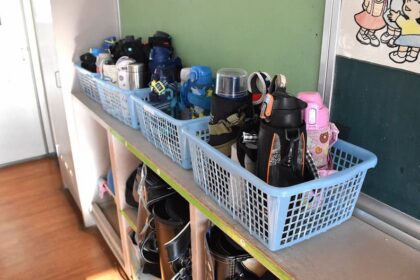What changed and why it matters
Thailand has pulled TikTok Shop into the group of high impact online marketplaces under the country’s Digital Platform Services royal decree, confirming that the platform now faces stricter duties under Section 20 of the law. The Electronic Transactions Development Agency (ETDA) said the designation will take effect one day after the notice appears in the Royal Gazette. High impact status brings new obligations for risk assessment, risk management, and merchant verification, going beyond basic registration rules that apply to all platforms.
The move follows ETDA naming 19 other marketplaces that already comply with Section 20 as of July 10. Those include Shopee, Lazada, Temu, eBay, AliExpress, Taobao, Alibaba, One2car, Grab, LINE Shopping, Kaidee, NocNoc, Thisshop, Rakmao, SCGHome, ONESIAM Application, ReadyPlastic Auction, and ROOTS Platform. ETDA also indicated that LINE MAN Mart is being prepared for the same list. According to corporate data service Creden, TikTok Shop Thailand generated revenue of 12 billion baht in 2024 and recorded a loss of 3.6 billion baht as the platform invested in growth.
ETDA has stressed that the review process is fair and thorough. Platform operators can submit information or objections, and the agency allows time for data collection and verification before decisions are finalized. Platforms named in the announcement must carry out additional duties beyond general requirements, including verifying and registering merchants and putting formal risk controls in place.
What Section 20 requires from high impact marketplaces
Section 20 requires high impact platforms to design and maintain a business risk assessment and risk management program that covers fraud, illegal goods, unsafe products, and systemic abuse. Operators must collect and keep up to date information about merchants, verify their identities, and make sure product listings present the information consumers need to make informed choices. Platforms must also retain and submit operational data to authorities when required, such as transaction values, gross income, and user numbers, so regulators can monitor market scale and emerging risks.
Thailand’s Digital Platform Services royal decree, which fully came into force in August 2023, authorizes ETDA to request information annually from platform operators with revenue or users above stated thresholds. Providers outside Thailand are covered when they serve Thai users, and they must appoint a local contact in Thailand to coordinate with ETDA. Non compliance can lead to suspension of operations within 90 days and possible criminal penalties under Thai law.
ETDA has also drafted an organic law, building on the decree, that outlines extra duties for digital marketplaces that reach certain size thresholds. The draft sets criteria tied to local transaction value, user base, and merchant counts, and it adds requirements such as clear product display standards, merchant verification, a notice and takedown mechanism for non compliant goods, and legal entity registration for platforms that meet the threshold.
A market transformed by social video shopping
Thailand’s ecommerce sector grew about 14 percent in 2024 to 1.1 trillion baht, with projections of 1.6 trillion baht by 2027. The country has become the second largest ecommerce market in ASEAN behind Indonesia, even though it is the region’s fourth most populous nation. Thai consumers are highly engaged: recent surveys show 75 percent use Shopee, 67 percent use Lazada, and 51 percent shop on TikTok, reflecting the rapid shift toward social video shopping.
A decade of rising internet use, smartphone adoption, reliable logistics, and digital payments has changed how Thais buy everything from fashion and beauty to food and electronics. More than 80 percent of online sales occur on mobile devices, and mobile wallets are on track to reach 63 percent adoption by 2025. Social commerce is entrenched, with Thailand reported as having the highest share of social commerce shoppers globally, and livestream selling has become a mainstream route to market for small brands and creators.
Within this surge, TikTok Shop has become one of the fastest growing channels. Industry trackers estimate TikTok Shop generated around 5.7 to 5.9 billion dollars in gross merchandise value in Thailand in 2024. GMV means the total value of goods sold before returns or cancellations. In the first quarter of 2025, GMV in Thailand more than tripled year over year, with daily sales in the region reaching tens of millions of dollars. The platform claims millions of local sellers. Revenue figures for the Thai unit, which are separate from GMV, show rapid scale but also deep investment as the business chases growth.
How TikTok Shop’s scale intersects with compliance
Scale is central to high impact classification. A marketplace that handles large transaction volumes or serves a sizable portion of the population carries greater responsibility for safety, transparency, and reliability. TikTok Shop’s rapid expansion, measured by GMV and daily sales, has likely moved it across the policy thresholds regulators use to focus supervision. Being on the high impact list formalizes expectations that the company will invest in merchant vetting, data reporting, and structured controls.
What changes sellers and buyers should expect
For merchants, listing on TikTok Shop in Thailand will come with more rigorous checks. Sellers should prepare to verify their identities, business registrations, and tax information, and to keep that data updated. Platforms on the high impact list are required to verify and register merchants and to keep records regulators may need for audits. That can slow onboarding for new sellers and it may limit the use of informal storefronts without proper documentation.
Product listings are likely to face tighter standards. Clear product details, photos, origin information, and contact points for redress will be expected. Platforms must maintain a notice and takedown process for goods that violate Thai law or platform policies. High risk categories, such as cosmetics and electronics, often draw the most scrutiny. Sellers that rely on cross border shipments will need to pay attention to customs documentation and taxes as regulators across the region move to close loopholes.
For shoppers, stronger governance can improve authenticity and safety, reduce exposure to scams, and make complaint handling more reliable. Platforms may pass some compliance costs to sellers, which can feed into prices. Promotions and subsidies could shift as marketplaces rebalance growth with profitability.
Fraud, counterfeit goods, and data protection
Thai authorities have placed scam prevention and illegal goods at the top of their digital agenda. Banks and telecom operators are working more closely with regulators to curb payment fraud. ETDA’s data requests under the Digital Platform Services regime, combined with the Personal Data Protection Act (PDPA) that took effect in June 2022, create a framework where platforms must address harmful behavior while safeguarding personal information. Verification of merchants, clearer traceability of transactions, and faster takedown channels are core parts of that model.
Fair competition rules are on the horizon
The Trade Competition Commission of Thailand is preparing new rules aimed at curbing practices that small retailers say are squeezing them. During recent public consultations, officials described a shift from ex post enforcement, where regulators intervene only after harm occurs, to an ex ante approach that prevents market tipping points. The draft guideline on unfair trade practices in ecommerce is scheduled for board review, with the goal of taking effect by October 2025. Violations could carry criminal penalties under the Trade Competition Act.
The draft sets out four principles: business must be conducted fairly, discrimination or exclusion is barred, business conditions must be justifiable, and market competition must not be diminished. It lists specific practices regulators consider unfair, including forcing shops to set minimum prices, downgrading shops that do not buy advertising, simultaneous fee hikes, exploiting seller data to benefit a platform’s own operations, and ranking schemes that favor in house brands. Logistics rules feature prominently: the guideline would bar platforms from requiring sellers to use only one carrier or fulfillment system, from restricting access to third party logistics providers when those are cheaper or more convenient, and from hiding shipping fees.
Industry voices have raised concern that commission fees of 15 to 25 percent leave sellers with margins below 10 percent, while platform controlled advertising, payments, and delivery reduce bargaining power. Complaints include TikTok Shop’s preference for a single delivery partner such as J&T Express in some workflows, and dedicated logistics arms that generate large revenues within platform groups. Regulators have floated ideas such as ensuring sellers have at least three logistics options and considering limits on excessive commissions. The TCCT has also made clear that overseas platforms are subject to these rules if their conduct affects competition in Thailand.
What platforms may need to change
If adopted, the TCCT guideline would push large marketplaces to separate core marketplace services from ancillary services like logistics and advertising. Choice for sellers would become a requirement, not a nice to have feature. Algorithms that rank products and favor house brands would face scrutiny. Data governance would need to prevent the use of third party seller data to benefit platform owned shops. These expectations echo approaches taken in other jurisdictions and would align Thai practice with international trends.
Thailand is moving in step with neighbors
Regional experience shows how quickly social commerce can trigger regulatory action. In Indonesia, TikTok Shop faced a temporary shutdown in 2023 over rules that separated social media from direct selling, then returned by integrating with Tokopedia after a 1.5 billion dollar deal. The joint operations have merged parts of the seller experience, and authorities have also required platforms to collect and remit seller taxes at a flat rate. The Indonesian case illustrates how platforms can adapt business models to local rules.
Vietnam is strengthening control of cross border ecommerce imports. Authorities have proposed changes to the Tax Administration Law to require overseas suppliers to register, declare, and pay taxes, and are weighing the removal of VAT exemptions for small parcels sold through ecommerce. Regulators ordered Temu to suspend operations for business registration issues. These steps track a wider push across Southeast Asia to align fast growing digital trade with taxation, safety, and fair competition.
Cross border sellers face higher compliance
Many sellers in Thailand and across the region source goods from mainland China. Low prices have won share in categories like household goods and apparel, but they also create pressure on domestic producers. New Thai rules on merchant verification, product display, and complaints handling, along with possible competition guidelines, will raise the bar for sellers that ship from abroad. Documented origin, tax compliance, and clear return policies will be important. Thai small businesses could benefit if the rules reduce unfair undercutting, while consumers stand to gain from better product quality and accountability.
Data infrastructure and compliance
ByteDance is investing 127 billion baht to build a large data hosting service for TikTok in Thailand after winning approval from the Board of Investment. Operations are expected to begin in 2026. The project is designed to support video and ecommerce functions across Southeast Asia, reduce latency for users and merchants, and strengthen security controls. Local infrastructure can also make it easier to meet regulatory obligations around data access and audits while enhancing performance during peak sales events.
Thailand is attracting record tech infrastructure commitments. Google announced a one billion dollar data hub in Chon Buri, Amazon Web Services pledged 5 billion dollars over 15 years, and Microsoft plans to build its first regional data center in the country. These investments reinforce Thailand’s status as a digital hub and create the backbone that platforms need to comply with higher reporting and risk controls while continuing to grow.
Ecosystem partners can help sellers adapt
A growing network of TikTok Shop Partners (TSP) supports brands with store setup, content and livestream production, customer service, and fulfillment. Companies such as AnyMind Group operate studios and AI powered live commerce tools, and they manage operations for merchants that want to scale on social video. These services can help sellers meet stricter documentation needs, improve product presentation, and run compliant campaigns as the regulatory bar rises.
Key Points
- ETDA placed TikTok Shop on Thailand’s high impact list, triggering stricter oversight under Section 20 of the Digital Platform Services regime.
- High impact platforms must run formal risk assessments, verify and register merchants, and provide operational data to authorities.
- The designation takes effect one day after publication in the Royal Gazette, and foreign operators that serve Thai users are covered.
- Thailand’s ecommerce market reached about 1.1 trillion baht in 2024, with strong adoption of mobile payments and social video shopping.
- TikTok Shop generated around 5.7 to 5.9 billion dollars in GMV in Thailand in 2024, while its Thai unit reported 12 billion baht in revenue and a 3.6 billion baht loss.
- The Trade Competition Commission of Thailand is drafting rules to curb unfair practices, including forced logistics, discriminatory rankings, and excessive fees, with a target start by October 2025.
- Neighbors are tightening rules too, from Indonesia’s restructuring of TikTok Shop with Tokopedia to Vietnam’s tax and registration requirements and Temu’s suspension.
- ByteDance will build a 127 billion baht data center in Thailand by 2026 to support performance and compliance for TikTok and its ecommerce arm.












